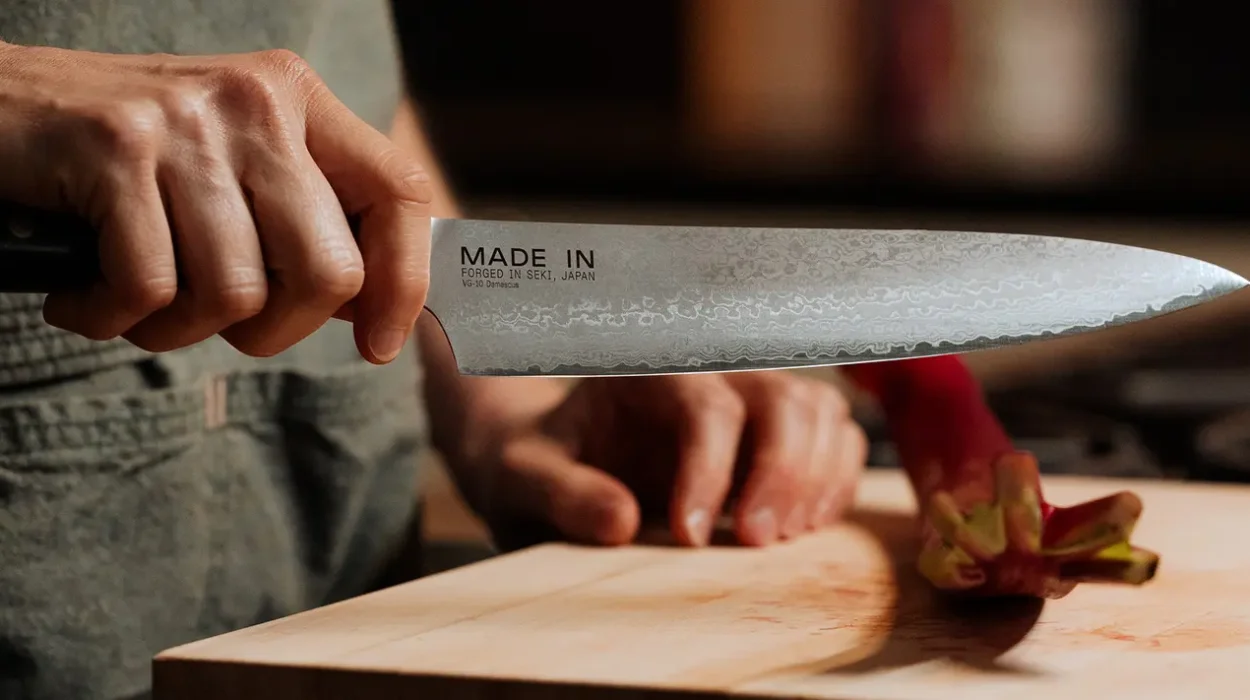The world of kitchen tools is vast, but few items are as crucial as a good knife. Among the wide range of options, German knives stand out for their quality and precision. But what makes them so special? One key factor is their German knife certifications. These certifications ensure that the knives meet certain standards of quality and performance. Understanding these certifications can help both home cooks and kitchen professionals make informed decisions when purchasing a knife.

What Are German Knife Certifications?
German knife certifications are official endorsements that signify a knife’s adherence to rigorous quality standards. These certifications are granted by authoritative bodies and are a mark of the knife’s durability, sharpness, and overall performance.
Why Are They Important?
For anyone investing in a kitchen tool, understanding German knife certifications is crucial. These certifications provide assurance that the knife has been tested and meets high standards. This is particularly important for professionals who rely on their knives for precision and efficiency.
The Key Certifications to Look Out For
Several certifications are associated with German knives. Each one represents a different aspect of the knife’s quality and performance.
ISO 9001 Certification
One of the most recognized certifications is the ISO 9001. This certification is a testament to the manufacturer’s commitment to quality management processes. A knife with this certification has been produced under strict quality controls, ensuring consistency and reliability.
DIN EN ISO 8442
This certification focuses on the knife’s materials and their suitability for food contact. It ensures that the knife is safe to use in a kitchen environment, posing no risk of contamination from harmful substances.
How Do These Certifications Benefit You?
Knowing that a knife is certified provides peace of mind. It assures you that the knife is of high quality and safe to use. This is particularly beneficial for kitchen professionals who require reliable tools for their daily tasks.
Enhanced Durability
Certified knives are often more durable. They are designed to withstand regular use without chipping or dulling quickly, making them a valuable investment.
Superior Performance
With German knife certifications, you can expect superior performance. These knives are sharp, precise, and efficient, making them ideal for both simple and complex tasks.
How to Choose the Right Certified Knife
When selecting a certified knife, consider your specific needs. Are you a professional chef, or do you cook at home occasionally? Understanding what you need from a knife will guide your decision.
Consider the Blade Material
The blade material is crucial for a knife’s performance. German knives are often made from high-carbon stainless steel, known for its strength and sharpness.
Handle Comfort
Comfort is key when using a knife. Choose a knife with a handle that feels good in your hand, reducing strain during prolonged use.
Size and Weight
The size and weight of the knife should match your comfort level. A knife that’s too heavy or too light can affect your cutting precision.
Maintaining Your Certified Knife
Once you’ve invested in a certified knife, maintaining it is essential to ensure longevity and performance.
Regular Sharpening
Keep your knife sharp with regular honing and sharpening. This maintains its cutting edge and ensures efficient performance. To test your knife’s sharpness, you can follow this guide.
Proper Cleaning
Always clean your knife after use. Hand wash it with mild soap and water, then dry it immediately to prevent rust and corrosion.
Exploring the World of German Knives
Beyond certifications, there’s a rich history and tradition behind German knives. Understanding this can deepen your appreciation for these kitchen tools.
The Legacy of German Knife Making
Germany has a long history of producing high-quality knives. Cities like Solingen are renowned for their knife-making traditions, contributing to the global reputation of German knives.
Comparing German and Japanese Knives
While both German and Japanese knives are esteemed, they have distinct characteristics. For a detailed comparison, you can refer to this external resource.

Frequently Asked Questions
What makes German knives unique?
German knives are known for their durability, sharpness, and high-quality materials. They are designed to perform exceptionally well in various kitchen tasks.
How often should I sharpen my German knife?
The frequency of sharpening depends on how often you use the knife. Generally, honing every few uses and sharpening every few months is recommended.
Are all German knives certified?
Not all German knives are certified. Look for specific certifications like ISO 9001 or DIN EN ISO 8442 to ensure quality and performance.
This article contains affiliate links. We may earn a commission at no extra cost to you.


